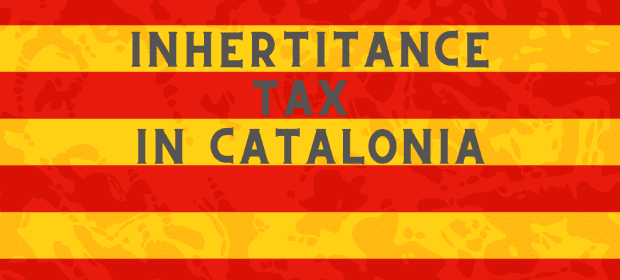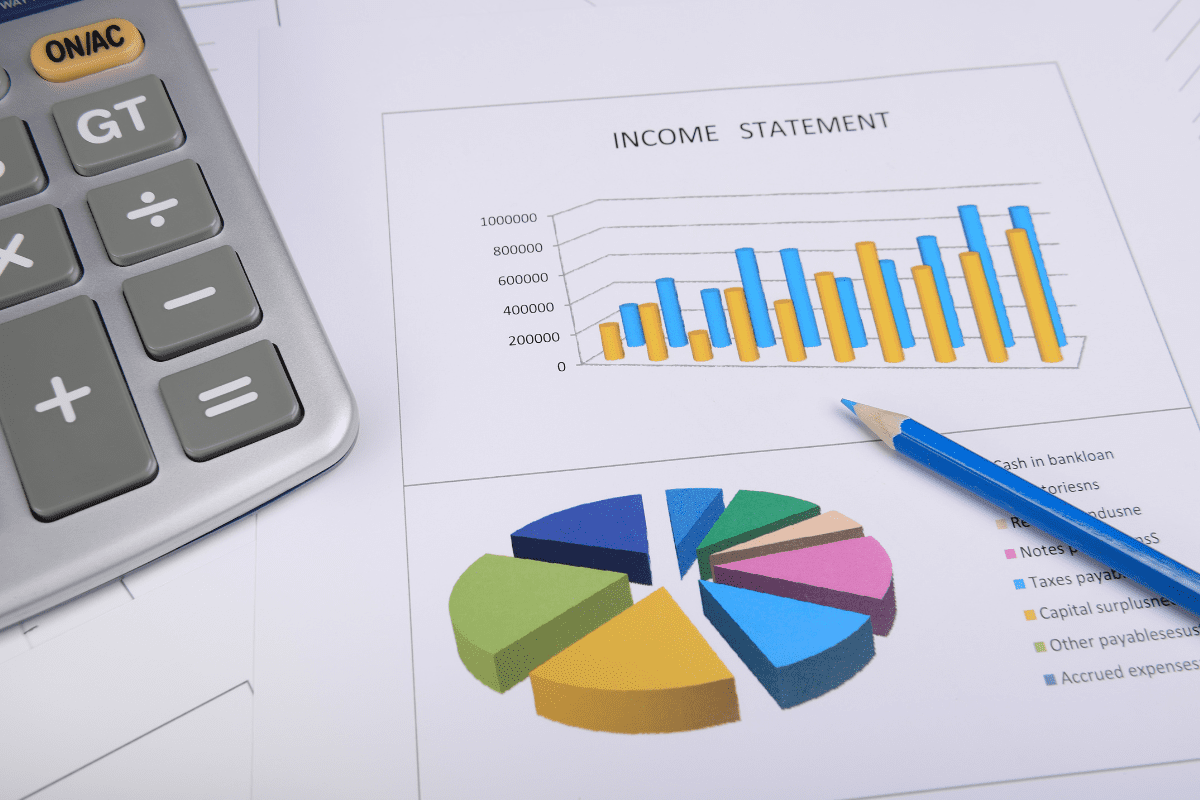Are you an expat living in Spain?
We are hosting an Expert Q & A to offer you the CORRECT answers
to those important questions everyone seems to have,
but can not always obtain.
By Spectrum IFA
This article is published on: 4th April 2023


We are hosting an Expert Q & A to offer you the CORRECT answers
to those important questions everyone seems to have,
but can not always obtain.
TAXES – Optimising and mitigating
BECOMING A RESIDENT – The correct process and how does it work?
CURRENCIES – Managing them optimally (potentially saving €1,000s)
RELOCATIONS – Effective administration and management of your move, taking the stress out of the relocation
LEGAL HELP – Whether for successfully buying/selling a property, immigration or something else
SAVINGS & INVESTMENTS – Effective ways to save money on gains and future planning/management
When registering for the event please submit the key question important to you
and we shall try to answer as many as we can on the day.
By Barry Davys
This article is published on: 16th December 2022

So, we have now managed to control the amount of wealth tax due (Wealth Tax in Catalunya). However, when we receive an inheritance or leave something to our family, we are taxed again. Inheritance tax or ‘impuestos de successiones’ feels even worse than Wealth Tax. At this point we have now paid savings tax, income tax AND wealth tax. Now there is IHT on top! Like Wealth Tax, though, it is possible to manage your liability.
Inheritance Tax in Catalunya – How it works
Perhaps the most important aspect is that tax is charged to the recipient of a bequest or property physically located in Spain. For UK nationals living in Catalunya, this is a surprise, as in the UK it is on the estate of the person who has passed away.
Tax is due on the value of the bequest but the rate of tax is dependent on your relationship with the person who has passed away. A spouse, child, sister, uncle or non-related all have different methods of calculating the tax due. Once the tax has been calculated, there may be discounts to be applied to reduce the amount. Indeed, it takes at least four different steps when working out the tax due to end up with the final figure. Fortunately, help is at hand in calculating the amount.
It is also very important to understand that the tax return has to be submitted within 6 months of the death and the tax has to be paid by the same day. A common situation we see is where a person is due to inherit a share of a property but the property has not been sold within 6 months. The forms still have to be submitted to the Hacienda and tax paid based on an estimated value. Failure to do so results in a fine and interest.
How to Manage Your IHT
There are numerous strategies, but for British people, careful planning is required. In the UK it is the estate of the person who has passed away that is taxed, but in Catalunya it is the recipient; so we have two different systems with two sets of rules. Care is needed to ensure that planning in one system does not increase the liability in the other. Fortunately our qualifications and experience in the UK and in Catalunya mean we understand this issue.
Another issue specific to British people living in Catalunya is that they do not plan for RECEIVING a bequest. When asked to assist with planning for inheritance tax it is nearly always from a view of “what can I leave to my children?”. Yet before then people often receive bequests from their parents and family which triggers a tax charge. Planning for receiving a bequest can be as important as planning for leaving a bequest.
Certain assets are exempt from Inheritance Tax. Careful choice of where investments are kept can also help. Finally, dovetailing UK and Catalan Inheritance planning can also make a difference.
If you would like to discuss how to manage your Wealth Tax liability, please email me at barry.davys@spectrum-ifa.com, call me on 00 34 645 257 525, or use the contact form below.
By Barry Davys
This article is published on: 5th October 2022

An old Chinese proverb advises “Only pay for your mistress from your income, never from your capital” It is not known if it was a wise woman or a wise man who came up with the proverb but it was a person who certainly knew about money.
I admit as a young man, before I heard of the proverb, I got this wrong. I bought a second hand Porsche 911 SC. It was fun, fast and purred fantastically. I had the money to buy the car, especially with the part exchange of my old car.
As a young RAF officer what I did not have was the income to service it. Simple repairs such as when the indicator glass broke stretched my income and I really struggled with the cost of the insurance.
The indicator glass, for example, went in a semi circle around the wing. It cost me £68 for a new glass because of that bend in the glass. I still remember the price some 41 years later as back then £68 was much more significant than it is today.

For those of us living here in Catalonia our mistress tends to come in the form of, for example,
In nearly all cases when you hear couples talking about the purchase, you will hear the question “Can we afford it?”. The thought process to answer that question is do we have enough money in the bank to buy it. If the answer is yes, the item is bought. It is much less usual to hear “can we meet the ongoing costs?”.
Interestingly, even when we have accumulated significant wealth this proverb still stays true. With more capital we buy bigger things; house, super yacht, more expensive cars etc. and end up with bigger expenses.

We need to ensure that we have sufficient net income to meet the running costs of the purchase. If we do we can
How do we get sufficient income to pay for our mistress? We use our existing wealth to build up an income that pays out regularly. Preferably in a tax efficient manner where possible.
Nowadays investing in the latest tech company or perhaps even a crypto currency is deemed to be the way to make money by some people. It may build your capital. However, neither generates much income and in some cases, no income.
If you would like to discuss how to build income from your investments so you can enjoy your purchases without worrying about the ongoing costs please feel welcome to get in touch, in the first instance, by email at barry.davys@spectrum-ifa.com
I cannot guarantee to help you meet all your running costs but as I am passionate about financial planning I anticipate I can improve your situation.
By Chris Burke
This article is published on: 15th January 2021

Whether you have lived in Spain for a while, or are new and trying to understand when you need to submit to the various deadlines, including taxes and overseas assets, I have listed below in an easy to read format what you have to declare and when, to help make your life more simple. These have been the same for the last few years and so should remain moving forward. If you would like help in understanding, declaring and any other questions don’t hesitate to get in touch.
End of January 2021
FORM D6
Stocks, bonds and investment funds that are outside of Spain and are not Spanish compliant. (this is to compliment and not replace Modelo 720). Failure to comply with the obligation to submit this Form D6, can lead to a fine of up to 25% of the undeclared amount, with a minimum of €3000. Late declaration entails penalties ranging from €300 in the first 6 months to €600 after that deadline.
End of March 2021
MODELO 720
This is a declaration of assets outside of Spain value of €50,000 or more. Once declared you only need to do this again if the value of any asset (e.g. a bank account) has risen by more than €20,000). The authorities can fine you anywhere between 100 and 10,000 euro for failure to meet the requirements (as of 2019, the European Union considers Spain to be breaking EU law with these sanctions for people who file the Modelo 720 late).
End of June 2021
Declaración De La Renta
Your annual tax return, showing all assets and worldwide incomes, must be declared for assessment by this date. Not all assets will be taxable, depending on how they are structured. In Spain the financial year runs from January through to December, and in June you are declaring for the previous calendar year’s finances.
Wealth Tax declaration – Catalonia
Wealth tax is applied if your worldwide assets are more than 500,000€ with an additional allowance of up to 300,000€ for your main residence. The tax is based upon your net wealth: assets minus liabilities. In Catalonia the rates of tax start at 0.21% and rises to 2.75% depending on your wealth each year and is taken from the 31st December the previous year. There are ways of mitigating this tax by having your assets structured correctly.
What role do Chris and The Spectrum IFA Group perform?
I am a financial planner/Wealth Manager and we specialise in optimising clients’ assets, including strategies to minimise taxes both now and in the future. We manage clients’ savings, investments and pensions whilst understanding what these are and the role they will play in their lives. I do my best to continually keep clients informed of anything they need to know in respect of these topics.
By Cedric Privat
This article is published on: 30th September 2020

Qui n’a pas rêvé un jour de pouvoir arrêter de travailler avant l’âge légal de la retraite? 50, 40, 30 ans? Et si ce rêve était réalisable?
La question peut faire sourire, surtout si vous résidez comme moi en Espagne à Barcelone, avec un prix de l’immobilier exorbitant et des salaires souvent moins élevés qu’en France.
Pourtant, de plus en plus de personnes y arrivent, alors pourquoi pas vous?
Le Frugalisme :
Le mouvement FIRE (Financial Independance, Retire Early), né aux Etats-Unis dans les années 2000, défend le principe de vivre simplement et de faire fructifier son argent pour pouvoir vivre de ses rentes.
Il s’inscrit dans un mouvement économiste du Frugalisme “Qui se nourrit de peu, qui vit d’une manière simple.” (Larousse)
Pourquoi ne pas s’en inspirer?
Comment?
• Économiser : s’acquitter de toute dette (surtout celle de votre bien immobilier), réduire son train de vie, éliminer les frais superflus, supprimer certains loisirs, épargner davantage dès le 1er du mois.
• Définir un budget : il sera indispensable de bien calculer vos besoins mensuels afin de définir votre patrimoine retraite et ainsi fixer votre objectif.
• Investir : en plus de votre résidence principale vous devrez investir judicieusement l’argent épargné dans des placements financiers, des actions ou de l’immobilier.
Les frugalistes suivent une « règle d’or » dite des 4% : disposer d’un patrimoine au moins 25 fois supérieurs au montant de ses dépenses annuelles. Si elles s’élèvent à 2.000 euros par mois, il faudra par exemple un patrimoine de 600.000 euros, permettant de vivre des 4% de rendement généré.

Quand commencer?
Bien évidemment, le plus tôt possible. Une retraite anticipée deviendra vite un rêve oublié si on débute trop tard, mais tout dépendra également de votre implication à la cause.
Les nouvelles générations se soucient de plus en plus tôt de leur retraite et pour cause; les prévisions des pensions publiques de retraite sont à la baisse et l’âge légal de départ à la retraite ne fait qu’augmenter.
Le frugalisme demandera une forte réduction de vos dépenses, il est souvent accompagné par une conscience écologique afin de se tourner vers un mode de vie décent et responsable.
Nos sociétés capitalistes amènent de plus en plus les individus à se poser des questions sur le rapport qu’ils ont à l’argent et au travail.
Qui peut appliquer cette méthode ?
Bien évidemment, toute retraite anticipée sera plus facilement accessible aux classes moyennes et supérieures. Pour beaucoup, il est déjà suffisamment compliqué de mettre un peu d’argent de côté.
Une recherche Google rapide vous permettra de lire les expériences de nombreux “jeunes retraités” à travers le globe.
Les méthodes divergent, mais la discipline est de rigueur. Certains retournent vivre chez leurs parents quelques années et économisent 70 % de leur salaire, d’autres travaillent pendant 10 ou 15 ans à un rythme à la limite du soutenable, certains vont compter des années chaque centime possible et enfin les plus privilégiés qui reçoivent un salaire confortable vont tout simplement faire plus attention, s’organiser et investir malin.
Cette méthode vous intéresse mais vous vous posez des questions ?
N’hésitez pas à prendre conseil auprès de professionnels à votre écoute.
Le groupe Spectrum à Barcelone vous propose d’effectuer un audit sans frais ni engagement afin de mieux vous organiser dans la préparation de votre retraite, anticipée ou non.
Nous vous aiderons ensuite à comparer et choisir le placement financier le mieux adapté à votre situation et préférence.
By Chris Burke
This article is published on: 27th August 2020

After the results from the UK’s General Election, it seems we are closer to Brexit than ever before, so are you prepared for it living in Spain?
There are many rumours among non-Spanish people of what you need to do to stay in Spain should Brexit happen. The response from the Council recently has been, should you hold a NIE and an Empadronamiento, you are proving you are resident in Spain, so for now these should suffice. However, if Brexit does go ahead, Spain could draw a ‘Stay in Spain’ line in the sand which would then need adhering to. In the worst case scenario, a renewable 90-day tourist visa would give you time to adhere to whatever the new rules are. Spain has said publicly it will reciprocate what the UK does, and the UK knows there are far more British people living in Spain than the other way around in the UK.
The current HMRC rules state that if you take advantage of moving your UK pension abroad it must be to either where you are resident OR in the EU (due to the UK being in the EU). If this is not the case, you would have to pay 25% tax on the pension amount. Therefore, it is very likely that as the UK would be leaving the EU, these rules would not be met and the 25% tax charge would start to apply to pension movements outside of the UK. This could be the last chance to evaluate whether it’s better for you to move your pension or not and take advantage of the potential benefits, including being outside of UK law and taxes.
If you were to start receiving your State pension now, you would approach the Spanish authorities and they would contact the UK for their part of the contribution, taking both into account. Before the UK joined the EU, you would contact each country individually and receive what they were due to pay you. If this becomes the case again, for many British people the UK part of their State pension would potentially be more important, as it is likely to be the bulk of what you receive. We don’t know how Spain will act with regard to state pension benefits to foreigners; therefore it would make sense to manage the UK element well if this is your largest subscription.
I recommend two things here; firstly check what you have in the UK so you know where you are. You can do that here:
https://www.gov.uk/check-national-insurance-record
You can contact the HMRC about contributing overseas voluntary contributions at a greatly discounted rate, from £11 a month: you can even buy ‘years’ to catch up:
https://www.gov.uk/voluntary-national-insurance-contributions/who-can-pay-voluntary-contributions
I have mentioned this in Newsletters before, but it really is a great thing to do, both mathematically and for peace of mind. Many people I meet living away from the UK have ‘broken’ years of contributions which is leaving themselves open to problems in retirement.
TIP: If you have an NI number, you do not necessarily have to be British to do this.
Time apportionment relief
Statistically, in 75% of British expat couples living abroad, at least one of them will return to live in the UK. It remains to be seen whether this changes if the UK leaves the EU, however, you can easily save yourself some serious tax if you have this in your plan of eventualities.
You can, in effect, give yourself 5% tax relief for every year you spend outside the UK by positioning your investments/savings correctly. Then, upon your return, you can take this tax relief when you are ready, such as in the following example:
Mr and Mrs Brown invested £200,000 ten years ago when they were living in Spain.
After this time, it is now worth £300,000
They returned to the UK and have been resident there for the last year (365 days)
They decide, after being back in the UK for 1 year (365 days) to cash in the investment, taking advantage of ‘Time Apportionment Relief’ which will be calculated the following way:
£100,000 (total gain)
multiplied by the number of days in the UK (365)
divided by total number of days the investments have been running i.e. 10 years (3650 days)
Resulting in a £10,000 chargeable gain (that is what you declare, not the tax you pay).
There are other potential tax savings as well, but they depend on other circumstances. If you have your savings/investments set up the right way you can take advantage of this.
If you have any questions or would like to book a financial review, don’t hesitate to get in touch.
By Barry Davys
This article is published on: 16th May 2020

This is an article for those of us who live in Spain but will apply in every developed country around the world.
The Covid-19 pandemic has led to a worldwide lockdown, including here in Spain. The economy has been shut down with the likes of Seat in Barcelona stopping production and Barcelona tourist numbers collapsing. We all know this because we are all a living part of the lockdown.
In response to what looks like the worst economic crisis in the 300 years of modern data collection, governments and central banks around the world have provided some $7 trillion dollars of stimulus packages to economies and workers. It is the fastest and biggest reaction EVER to an economic crisis. Well done, the central banks! It genuinely is helping to make sure that as we slowly exit lockdown, individuals and companies will be in a little better condition to start up again.
Would I have it any other way? No! However, the question we now need to answer comes from Angela Merkel when asked to provide a European bailout in the 2009 crisis; “But where will the money come from?” A valid question. And even more so for the crisis that has come from the coronavirus pandemic.
The money will come, in part, from higher taxation. In the UK today, a menu of proposed increases in taxation has been leaked. In Spain, a loophole in wealth tax legislation that allowed some unit linked insurance savings plans to be exempt from wealth tax has been closed. What is significant is that these changes are coming now, before we are even clear of the lockdown and virus.
The changes to taxation in Spain are likely to include savings tax, inheritance tax and wealth tax in particular. Changes were already being discussed and the economic fallout from the pandemic provides the reason to bring forward these changes. Specifically, the EU has told us to harmonise inheritance tax across Autonomous Communities as there are big differences in the amount of tax to be paid.
In the draft budget for 2020, there is a proposal to change savings tax. At present, we have three bands of tax. The top rate for gains and investment income over €50,000 is 23%. A new band will be introduced for gains and investment income over €160,000 of 27%. We should expect this change to happen soon as it is already in the budget which is going before Parliament for approval. The first case I have seen where this will apply would lead to an additional €48,000 in tax. It is pertinent to bear in mind that these tax rates can apply to the gain on some property sales.
In addition to the wealth tax change described above, we understand that others may now be considered.
Planning actions
Help is at hand. There are planning actions that can be taken to minimise the tax issues. Here is a three point plan to minimise the effect of these changes:
1. Savings Tax. Move investments into Spanish tax efficient investments. These are available and you do not have to move your investment to Spain to qualify. They are available in Sterling as well as Euros and USD. If you would like confirmation on which of your current investments are tax efficient in Spain, I am happy to review them with you.
2. Inheritance Tax. This requires very careful consideration before making decisions to manage inheritance tax. Making sure you can maintain your lifestyle is an important part of this planning, especially for the survivor in the event of one half of a couple passing away. Once these criteria have been met, planning is feasible. A recent case of planning has saved £87,719 in UK inheritance tax for a couple living here in Spain. For nearly all of us from the UK, our estate at death will be assessed for UK inheritance tax.
3. Wealth Tax. Sometimes, the planning for wealth tax is simple. In other cases, not so simple. Care is needed and it is worthwhile asking for a review.
We have had our cake in the form of stimulus to protect the economy. We will shortly find we will have indigestion from eating the cake in the form of higher taxes. Fortunately, we still have a few indigestion tablets available to relieve our pain.
If you wish to discuss tax on your savings, inheritance tax or wealth tax please feel welcome to call. If this helps, you can match your availability for a call with mine online here.
By Chris Burke
This article is published on: 26th February 2020

Just a reminder that time is running out for submitting your Modelo 720 declaration for 2020. The deadline this year is the 31st March and is fast approaching.
All those tax resident in Spain (those living in Spain for more than 183 days a year or where Spain is the main base for your business) should be aware that as a result of legislation passed on 29th October 2012, residents in Spain who have any assets outside of Spain with a value of €50.000 (or alternative currency equivalent) or more, are required to submit this declaration form to the Spanish authorities.
This declaration can be made online, through the Tax Office`s web page www.agenciatributaria.es where the Modelo 720 formcan be located (type in Modelo 720 into the search block on the top right hand side of the page). It must be filed between January 1st and March 31st of the first year of residence to avoid being investigated or fined by the Spanish authorities. I would personally recommend speaking with your accountant / Gestoria to avoid mistakes.
To warrant a declaration the total value of assets should exceed €50.000 in each or any one of the categories; e.g. if you have 3 bank accounts and totalling up all the balances it exceeds the €50.000 limit you are subject to making the Modelo 720 declaration. However, if you have a bank account at €30.000 and, say, investments valued at €30.000 then there would be no reporting requirement as they are in separate categories and each individual total value does not exceed the €50.000.
A declaration must be submitted individually, regardless of the percentage of ownership (in joint accounts). For example, if you have a joint bank account with a value exceeding €50.000, although your particular (say €25.000) share is below the threshold, each owner would still be required to submit an individual declaration based on the total value of the account.
Although this declaration of assets abroad is solely informative and no tax is charged, failure to file, late filing or false information could result in fines.
For this reason, we recommend that everybody arranges to declare their assets. Once you have made your first declaration it is not necessary to present any further declarations in subsequent years, unless any of your assets in any category increases by more than €20.000 above the initial value declared.
By Chris Burke
This article is published on: 12th February 2020

Tip 1 – Maximising your savings – inflation is the killer
In the UK, ‘Stealth Taxes’ are the normal weapon governments use to raise taxes now. These are taxes that don’t affect everyone on a daily basis, or maybe not today, but could do significantly at some point. For this and other reasons, these taxes don’t usually cost them votes and raise a good level of tax money.
I argue one of the biggest Stealth Taxes is inflation, and the two reasons I believe this are: because of my 90-year-old father, and also because I need proof, to be shown something before I believe it.
As you can see from the above graph which dates back to the beginning of the eurozone, inflation has generally fallen. Up until 2008 it was perhaps on average 3%; from the crisis at the end of 2008 more likely 2%. So, what if a glass of wine goes up by 2% a year, I hear you say, or the menu of the day as well, that’s nothing. Well, yes it is. When you compound that over a period of years it makes a big difference. For example, people have come to see me with some money sitting in a bank account earning nothing. They know this, but they don’t know what else to do with it. They like the security of a bank account for the value of the money, and the security of having access to it if they want it. So 6 years later, they come back to see me again and say ‘Yes, we have definitely decided we want this money to do something for us (let’s says its 100,000). Can you help us, please?’ There are two things that immediately come to my mind here, firstly, not everyone is disciplined and hasn’t spent some of that money by then. Secondly, and perhaps more importantly, they don’t actually have 100,000 anymore, they have 88,000 in real terms. So, each year they have lost 2,000: imagine every year you draw 2,000 out from your bank account and flushed it down the drain; how painful would that be? That’s exactly what you are doing by not managing your money effectively. We are also in an incredibly low inflation environment at the moment. Imagine if it went up to 3 or 4%?
My father, in his latter years of retirement, does not stop commenting on how prices have increased, what they used to be and how expensive things are (don’t worry; he is not destitute, just astute). We don’t really notice this on a daily basis, the main reason being we are still working and earning an income. We can always replace what we spend within reason. However, when you finally have no more income and only savings and investments, it really hits you.
Action Point 1 – make sure your assets, no matter what they are, are being managed effectively for you, bearing in mind that one day your income will stop, alongside giving you access to emergency funds should you need it.
Tip 2 – Brexit – last chance saloon for moving UK pensions
Last month I attended seminars bringing us financial types up to date with everything going on in 2020, including Brexit/UK pensions and one of my worst fears was confirmed. When Brexit is officially rubber stamped, you will be charged 25% if you want to transfer your UK private or company pension outside of the UK. This means your pensions freedom of choice will have effectively ended, as who would want to pay that tax to move it? So moving forward, your pension would remain in the UK. What would that actually mean? Well, it would have to adhere to UK rules moving forward, which in essence are starting in real terms to reduce the benefits you could receive (another stealth tax). It could be the best place to leave your pension anyway, but what we suggest is detailed analysis of what you have and what your options are, before you don’t have a choice. We conduct this on a complimentary basis for you, giving you the knowledge to make a decision. For many people the right advice is to leave their pension where it is, but for some moving it is by far the best thing to do.
Action Point 2 – Check whether your UK pension should take advantage of the last potential chance to the European freedom of pensions movement.
Tip 3 – Investments outside Spain tax
Not many people are aware that assets they have outside of Spain are/can be taxed differently to those inside it. In essence, most assets outside Spain held by a Spanish resident need to have tax paid each year on any gain made, regardless of whether you access them or not. The reason why this is important, is that deferring tax until a time when you can reduce/mitigate it is one of the biggest ways to increase your wealth.
There are options similar to UK ISAs and other asset planning available that can help you be Spanish compliant and potentially save you taxes.
Action Point 3 – Try to have your assets Spanish compliant. Evaluate what assets you have, how they are taxed and make sure they are tax efficient moving forward.
By Barry Davys
This article is published on: 8th January 2020

This is the first in a series of three articles on the challenges of financial planning in your personal life when you own a business or are a significant shareholder in a business. This first article is planning when starting a business. The next article covers planning when you have an established business. The final article, the one we all want, goes through what happens when you sell the business and find yourself cash rich.
When starting a business, it is the business that gets the attention and often your personal, non-business, financial position is left unplanned. I would recommend at this stage you do prioritise the business as if it goes well, your business is likely to be the driver of your wealth. It should certainly grow your wealth quicker than investing in funds, shares, etc. It will probably make you wealthier than investing in Bitcoin!
Making your business the priority, however, does not mean that you can completely ignore your personal finances or manage them on a “when I get round to it” basis. Owning a business means it is very important to do your own personal planning because success can ebb and flow and, especially for a new business, it can go bust. Making sure your own affairs are in order protects your family and may even allow you to start up again, if arranged properly.
I recognise that different companies have different characteristics and that this can affect your planning. I also recognise that owners of businesses in Barcelona should base their planning specifically on Catalan laws and taxes.
Product – tick. Business plan – tick. Website – tick. Instagram – tick. Business partner – tick. Financing – tick. So the business is good to go and will, of course, be a success.
I wish all of you who are starting a business the very best of luck. It can be a most rewarding experience, even though it can also be exhausting and stressful. However, the data shows us that whilst 80% of new businesses survive one year, only 30% make it past the 10 year point¹. This statistic shows you why your personal finances will continue to need your attention.
Planning points:
1. Recognise that personal money differs from business money. Keep it separate!
2. Get your affairs in order before starting your business. If you have children, make sure you have life cover. Get private medical insurance so you can be seen quickly and get back to work as soon as possible.
3. Know what your personal expenses are before you start the business. This can help you decide how much to take from your business each month. Do not start your business and then take only what you think the business can afford. This will push you into debt personally.
4. Conversely, when business is going well, don’t buy flash cars, boats, luxury holidays etc. until you have sold your business or unless you are Bill Gates, Elon Musk etc. and your company is doing remarkably well.
5. Keep an emergency fund in your personal finances of at least 6 months’ expenses in case there is a business “wobble”.
6. When getting equipment and vehicles for your business do not buy them in the early days of the business, especially if you have to put personal money into the business to make the purchase. Your financial risk is minimised if you rent or lease equipment. We can also now get cars on a “subscription” basis. This means that instead of buying or leasing you pay a fixed monthly fee for the use of a car. This is like renting a car from Avis but you rent it from the car company. If you need to walk away after six months, you can do so with no liability. This is available from several car companies in Spain.
7. Keep flexibility in your personal finances. Do not, for example, put money into pensions in the early days of your business unless you have additional reserves. We cannot access money invested in a pension until you approach retirement.
8. This may mean that you need to leave money in the bank. In Spain, that means we will earn, at the moment, virtually no interest. Accept that fact and make your money
¹Forbes, Fortunley and Business Wire. Statistics are USA statistics
